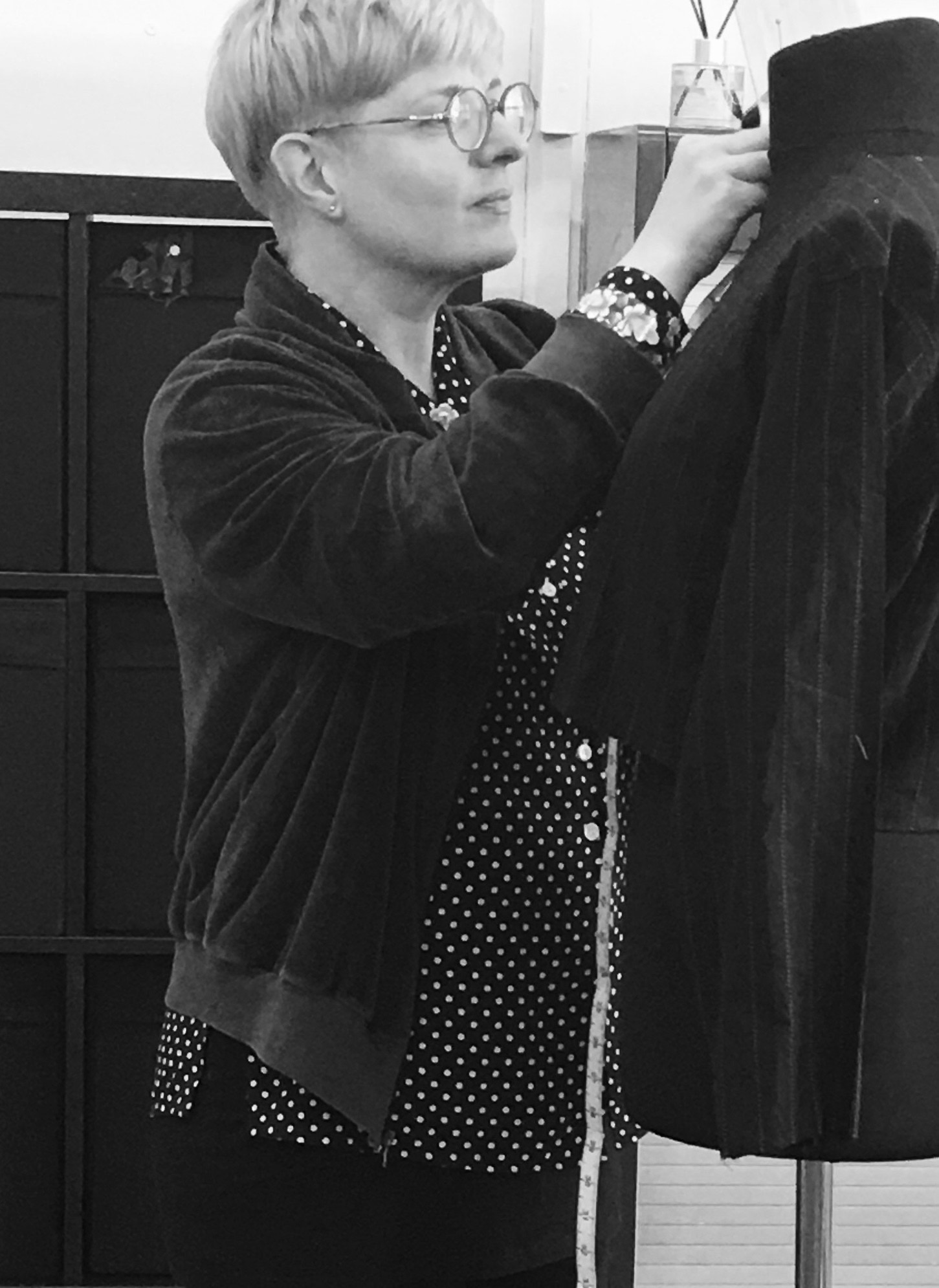ABOUT ME

My work centres around the reuse of existing textiles, inspired by the shape and details of an original garment. My research looks at the emotional value of clothes created by their history and the act of making or mending them, and aims to demonstrate how this can lead to a fundamental shift in our relationship with what we wear.
In the 1980s, I started collecting 2ndHand clothes and customising them in my bedroom to create one-off pieces, influenced by the surrounding culture of New Romantics experimentation, which followed the rage against society of the Punks. My practice today reflects that same desire to make for myself, and encourages in others the joy to be gained from owning the skills and creativity to customise. After years of collecting, my own wardrobe is a random collection of pieces, not curated or selected, but connected by their emotional value to me as a result of their history and memories they hold. I’m drawn to the idea of how we give meaning to our clothes, expressing identity and aligning with cultural groups or using them as a visual language.
My teenage experimentation has developed into an exploration of zero waste and the relationship between garment shapes and the body. Seeking to use a whole piece of cloth, I am drawn to Japanese design and culture, using the shape and traditions of the kimono to reimagine ways of creating garment silhouettes.
Following principles of usefulness and necessity, I let damage and wear of used clothes guide the formation of new textures and patterns using Japanese techniques such as boro and sashiko. I’ve always had a strong sense that age and use adds to the value of my clothes. Visible signs of wear that pay homage to the process of ageing and enhance beauty, which can be featured rather than hidden.
Fashion is a second career for me, my first degree was in quantity surveying and I spent my 20s as a cost consultant and project manager in the City of London. I was selected for a TV show about changing careers and worked with a life coach who ignited a curiosity about my relationship with clothes and creativity that wasn’t being satisfied in the construction industry. I travelled before starting my fashion degree which is the experience that informs my ethical and sustainable values.
In the 1980s, I started collecting 2ndHand clothes and customising them in my bedroom to create one-off pieces, influenced by the surrounding culture of New Romantics experimentation, which followed the rage against society of the Punks. My practice today reflects that same desire to make for myself, and encourages in others the joy to be gained from owning the skills and creativity to customise. After years of collecting, my own wardrobe is a random collection of pieces, not curated or selected, but connected by their emotional value to me as a result of their history and memories they hold. I’m drawn to the idea of how we give meaning to our clothes, expressing identity and aligning with cultural groups or using them as a visual language.
My teenage experimentation has developed into an exploration of zero waste and the relationship between garment shapes and the body. Seeking to use a whole piece of cloth, I am drawn to Japanese design and culture, using the shape and traditions of the kimono to reimagine ways of creating garment silhouettes.
Following principles of usefulness and necessity, I let damage and wear of used clothes guide the formation of new textures and patterns using Japanese techniques such as boro and sashiko. I’ve always had a strong sense that age and use adds to the value of my clothes. Visible signs of wear that pay homage to the process of ageing and enhance beauty, which can be featured rather than hidden.
Fashion is a second career for me, my first degree was in quantity surveying and I spent my 20s as a cost consultant and project manager in the City of London. I was selected for a TV show about changing careers and worked with a life coach who ignited a curiosity about my relationship with clothes and creativity that wasn’t being satisfied in the construction industry. I travelled before starting my fashion degree which is the experience that informs my ethical and sustainable values.
